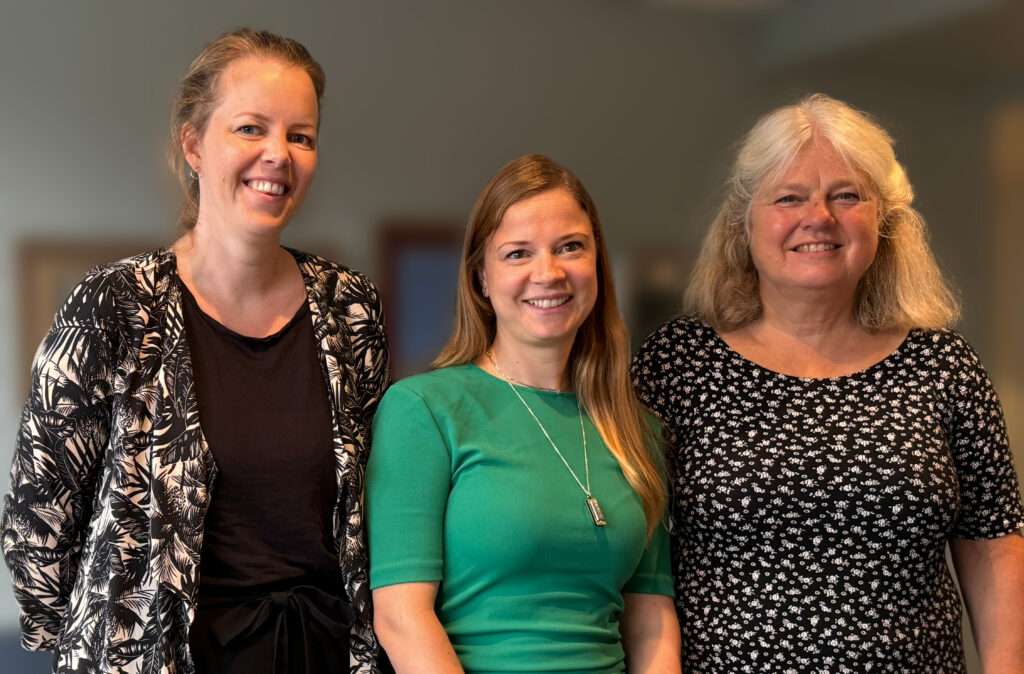Should municipal housing companies worry about transport and mobility? Yes, say the municipal housing companies in Gothenburg. To create affordable housing, land use needs to be reviewed, for example, car parks take up a lot of space. The Framtidskoncernen is now making it easier for its tenants to travel without their own car.
In Gothenburg, the municipal housing companies, the Framtiden Group, have joined forces around a common goal: to do everything necessary to enable tenants to get around the city in a sustainable way. With 76,000 apartments and 40,000 parking spaces, they are Sweden's largest public housing association and reach one in four Gothenburg residents. This gives them a great opportunity to change tenants' travel habits.
After extensive preparatory work, the group formulated a vision for the future of mobility in 2021. This vision means that an attractive and efficient mobility offer for their tenants will be fully developed by 2030. To achieve this goal, they are working on a number of strategic initiatives, such as the shared use of parking spaces, parking pricing and the development of various mobility services. The aim is to increase tenant satisfaction, promote sustainable travel and create new conditions for housing production by being able to build on unused parking lots instead of green spaces.

Over the past year, the group has started to work more concretely on realizing the strategy. Anna Zajc is a business developer at Poseidon, which is part of the Framtiden Group.
- "Major changes have already taken place, and we are well on the way to aligning car parking with the target image. We are changing our parking fees to market prices, moving to permit parking and installing charging facilities for electric cars," she says.
At the same time, they are promoting cycling through, for example, improved bicycle spaces and more on-street bicycle pumps. They are also exploring the possibility of picking up parcels without owning a car. The group works both with pilots, where they need to test before scaling up, and relatively simple initiatives where they can start right away.
According to Karin Hagberg, sustainability manager at Familjebostäder, the fact that the change journey spans a long time is a major challenge.
- "A lot of the work is now being done on a project basis, but the aim is for this to become an integrated part of our operations. This requires a change in how we work today, but also a shift in perspective from focusing on car parking as the obvious housing complement, to focusing more on other conditions for moving around the city. Something that will also benefit more tenants as the majority do not use cars," explains Karin Hagberg.
Another challenge for the group is to simultaneously monitor and contribute to a change in the requirements for replacement parking that exist in residential construction today. These requirements are based on today's needs, not the future, and there is a risk of investing in expensive parking facilities that are then left empty.
But ultimately, the mobility strategy is about building affordable housing and keeping tenants happy.
- To build housing at reasonable costs, sustainable travel and efficient use of parking are needed. It is also a prerequisite for a sustainable transition and contributes to the City of Gothenburg's climate goals," says Joa Ivarsson, Sustainability Manager at Framtiden Byggutveckling.
- "We also know that Gothenburg is expected to have a high influx of people in the future and the infrastructure we have today cannot handle more cars, so an important aspect is to create the conditions for a life without a self-owned car.
So what do residents think about the changes?
- Raising parking fees to market prices, so that car parking is paid for by those who actually drive a car and is not subsidized, naturally evokes reactions. At the same time, we get positive reactions when charging stations are installed, when tenants are given the opportunity to rent their own bicycle parking and when we refurbish bicycle rooms," says Anna Zajc.
- We are just at the beginning of the implementation, so we look forward to monitoring customer satisfaction and always trying to get it as right as possible.
What tips do you have for other housing companies working on sustainable mobility?
- Buy-in is crucial. Involve the management early on and listen to what they think the tenants would like to see for changes. Having a clear long-term vision helps to communicate the vision both internally and externally," says Karin Hagberg.
- Many housing companies are working on mobility issues in new construction. By also investing in the existing stock, we create good conditions for being able to use parking for housing production and really contribute to the climate goals.
- It is also important to thoroughly understand the current situation, including tenants' travel habits and the area's conditions, in order to implement the right measures in the right place," concludes Karin.
Karin Hagberg, Sustainability Manager Familjebostäder, karin.hagberg@familjebostader.se
Anna Zajc, Business Developer Poseidon, anna.zajc@poseidon.goteborg.se
Joa Ivarsson, Sustainability Manager Framtiden Byggutveckling, joa.ivarsson@framtiden.se